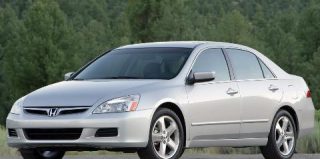WSOP final table not foreign to Belgium’s Kenny Hallaert A November tour to Las Vegas for the final table of the World Series of Poker`s $Ten,000 buy-in No-limit Texas Hold `em World Championship is kicking off to become routine for Kenny Hallaert. A November excursion to Las Vegas for the final table of the World […]
How Daimler’s Car2go could convert how Fresh Yorkers get around town
Fresh YORK — As residents of Brooklyn and Queens know all too well, not having a car makes it difficult to get from one borough to the other. Buses are maddeningly slow, most subway lines require a detour through Manhattan, and a cab or Uber quickly becomes expensive.
“I have friends who live in Astoria I don’t see because it’s hard to get there,” said James Bednark, who works in television production and lives in Prospect Park South, Brooklyn, only thirteen miles away.
Soon, however, there will be another option: hopping into an unnervingly petite, but remarkably roomy, two-person vehicle and motoring to the other borough, where the rental finishes once the driver parks.
On Aug. 29, Car2go, a car-sharing service that launched in Brooklyn last October, is expanding to Long Island City and the rest of western Queens.
The stir marks a critical step in the so-called sharing economy’s transportation segment, which once seemed a pipe desire of environmentalists and now includes such mainstays as Zipcar and Citi Bike. With its fleet of Clever cars that users can locate, reserve and open with a mobile app, Car2go could complement the transit system and help pack a fuckhole in the way people get around.
Or it could just bring more congestion to neighborhoods where it’s already hard to park.
“This is a location where [Car2go] can indeed test if consumers are ready for this service,” said Thilo Koslowski, an automotive analyst with Gartner, a research hard. A lot of people still want to drive a car, he added, “but without the hassle of ownership.”
The timing is certainly right for expansion: Brooklyn, Queens and the Bronx have been adding jobs and population swifter than Manhattan for years, heightening the need for better transportation inbetween boroughs and within them. And more Fresh Yorkers are turning to apps to get around town.
Car2go — the creation of Daimler AG — has launched in fourteen locations in North America, including Seattle and Washington, D.C., since commencing out in Austin, Texas, in 2010. The company said none has grown swifter than Brooklyn.
“Our ultimate purpose is to be in all five boroughs,” said Paul DeLong, CEO of Car2go North America. “We’re nine months in, and we see the adoption. We want to proceed that snowball.”
The company’s distinguishing feature is its departure from Zipcar’s round-trip model, in which customers comeback the car to its kicking off point in a garage or parking lot. Car2go’s one-way service works more like bike-sharing: Members pick up a car parked on the street anywhere within the “home area,” and can leave it anywhere within that area when they’re done.
For now, the home area will extend from Surf Avenue in Coney Island to 20th Avenue in Astoria, and include Woodside and Sunnyside, for a total of forty four square miles, up from 36. The company will add one hundred Wise cars to the four hundred fifty now in Brooklyn, and it expects Queens to bring an extra 25,000 members. There are presently more than 30,000 in Brooklyn.
Bednark, a Car2go member despite wielding a car, is looking forward to watching his friends in Astoria — and not having to give up his parking space. At its 41-cents-a-minute rate (maxing out at $15 for an hour), the approximately 30-minute tour from his Brooklyn apartment would come to around $13, including tax, or less than half the price of a cab or Uber. (Car2go covers the gas.)
“If Car2go can connect Brooklyn and Queens, that’s a game-changer,” he said.
Some experts see an industrywide race to figure out what consumers want from cars as technology provides fresh ways to use them.
“There’s a lot of competition to redefine mobility, and there aren’t clear winners yet,” Gartner’s Koslowski said. Albeit companies like Uber are gaining traction as an alternative in the taxi business, he said, no single company has yet come to predominate the quickly evolving car-sharing industry.
He added that if Car2go resumes to build up traction in Fresh York, it will put pressure on companies like Zipcar, which is experimenting with a version of a one-way rental service in Boston.
Zipcar and car-rental giant Enterprise, which has a round-trip car-sharing division, say they are not in competition with Car2go, and that their services are geared more toward substituting car ownership. They see Car2go as suited to brief trips within a city, and not a substitute for possessing a car.
Still, they are paying close attention. “We might be losing some business to that [one-way] model,” said Ryan Johnson, vice president of Enterprise CarShare, adding that he wouldn’t rule out attempting something similar. “We absolutely are watching that space.”
Some experts question how efficient Car2go will be at improving outer-borough mobility. Richard Barone, director of transportation programs for the Regional Plan Association, thinks the service could help with the “last mile” problem often found outside Manhattan, where people can live a long way from the nearest subway stop.
Ideally, he said, he would choose to see carpooling or the use of services like Via or UberPool, in which numerous passengers pack a single car. (Via is presently available only in Manhattan.)
He also sees a potential for conflict in a private company’s use of public curb space. “There are a lot of constituencies that want a chunk of the curb,” he said.
In addition, Barone worries that Car2go will be afflicted with a problem common to bike-share programs: Cars will wind up bunched together in high-use areas and be hard to find in others. Staffers can go around and redistribute cars, he said, but that adds to congestion.
A Car2go spokeswoman said that only forty cars a month out of the four hundred fifty in Brooklyn need to be moved by the company team. The rest circulate organically.
But the company could meet resistance from people who don’t want any more competition for parking — least of all from a car-rental company. “There’s not enough parking out there,” said a construction contractor at a storefront near the Barclays Center. “All of a unexpected, they’re going to use [the street] as their parking garage?”
Parking, in fact, may be the fattest challenge to Car2go’s growth. In almost every other North American city, and in much of its European operations, the company pays for the right to park on the streets — and in some cases gets specially reserved spaces in comeback. It always gains access to metered zones, where members can park for free and leave the car there for the next user or even overnight (the catches sight of remain open to the general public as well).
Since Fresh York City doesn’t issue parking permits as other cities do, the Department of Transportation hasn’t taken any money from Car2go, but it also hasn’t made a deal for metered parking, citing challenging requests for precious curb space. A spokeswoman said that the agency looked forward “to witnessing more data” about Car2go’s program.
The company, meantime, is negotiating with a private company for parking space near LaGuardia and JFK.
Koslowski said he thinks access to parking is crucial to Car2go’s success — and worth it to the city, since it would ultimately mean more people using fewer cars and creating less congestion.
So far, the data from the company have been demonstrating powerful use around subway stops, indicating that the cars complement the transit system.
The most significant data about Car2go may be coming this fall in a probe by Susan Shaheen, a co-director of the Transportation Sustainability Research Center at the University of California, Berkeley. It will look at the company’s influence on five North American cities and whether its one-way model reduces car use and ownership and greenhouse-gas emissions, as Zipcar’s round-trip model has been shown to do.
In the meantime, Shaheen said, Car2go has some advantages over others in the car-sharing industry.
“It can suggest more plasticity and convenience,” she wrote in an email. The expansion to Queens, in particular, can pack “gaps in the existing transportation network” and provide “critical linkages to public transit, airports and other destinations.”
That’s how Queens Borough President Melinda Katz sees the service, however she acknowledged having “a little trepidation over the parking issues.”
Car2go said that the lack of a parking arrangement has not hurt growth in Brooklyn.
“People find out where the open catches sight of are,” said Brooklyn General Manager Thomas McNeil, and pointed to what may be the secret of the company’s success: the 8-foot-10-inch length of its Wise cars, slightly more than half a midsize and about five feet shorter than a compact.
Edrian Colina is a Prospect-Lefferts Gardens, Brooklyn, resident who uses Car2go for spur-of-the-moment nights out with his wifey, softball games at McCarren Park in Williamsburg and trips to the Home Depot in Crimson Hook. Parking has never been an issue for him.
“There is usually a spot or two available where you wouldn’t be able to fit anything other than a Wise car,” he said.
For the total Crain’s Fresh York Business version of this story, click here .



